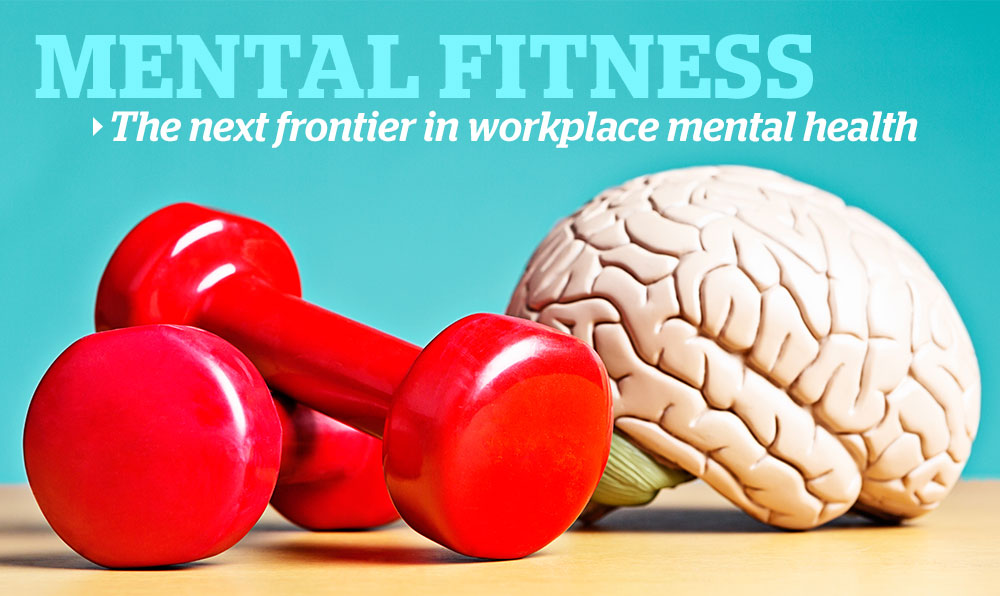

Columns/Blogs
Features
Mental Health
One cure for loneliness is to start from within
By Bill Howatt

EDITOR’S NOTE: ‘Mental Fitness: The next frontier in workplace mental health’ is a weekly series, in partnership with Dr. Bill Howatt of Howatt HR Consulting in Ottawa. This series takes a deeper look at mental fitness — an approach to prevent mental harm and promote mental health.
“When we see fault with what we see in the mirror, we are prone to believe others see the same thing.” — Dr. Bill Howatt, author of The Cure for Loneliness
One of the coolest parts about writing a book is the journey that one goes through, cognitively and emotionally putting each word on a page.
After I have written a few pages and get up to engage in my day-to-day world, I like to notice how the words I have written relate to me.
Writing The Cure for Loneliness, which is being released in May, has been an existential awakening for me. Not just because I finished the book, but also because I am confident it can help many people.
The combination of writing this book during COVID-19 and my personal relationship challenges have awakened me to the importance and power of the different kinds of authentic social connections we can build. I am discovering that perhaps the most important authentic connection to build first is not on the outside, but within.
Believing in yourself
A core pillar of good mental health is being comfortable within one’s own skin, which requires a positive relationship with ourselves.
We have somewhere between 12,000 and 70,000 thoughts on any given day. Ask yourself how many of those thoughts are supportive rather than judgmental when it comes to belief in yourself.
The unconscious brain is listening and learning from the thoughts we accept as true, and that influences our emotions that impact our behaviour choices.
I recently heard a wonderful example about how many people have higher expectations for others than for themselves.
The speaker said something like, “Imagine you are at work and you hear your boss make five negative comments about a peer you value regarding their looks, confidence, and skills in a judgmental way. How comfortable would you feel? What would you feel compelled to do?”
I would want to confront the behaviour and have it stopped because it is a form of harassment and abuse, which is unacceptable in the workplace.
Now consider on any given day how many people may have 15 to 20 negative comments about themselves. Is this any different than the above example? It’s still abuse.
Self-abuse can be as, or more, damaging than external abuse, as it shapes who we become and how we experience the world.
To have a relationship form within begins by stopping self-abuse and setting a rule of no tolerance for negative self-talk about one’s values, worth, or abilities.
This is a trainable skill, but one that must be learned.
Why this microskill matters
Before we can build authentic social connections that insulate us from self-disgust and self-abuse, we must have the courage to build a relationship within. Otherwise, we risk becoming trapped by what I call mental traps.
- A recent study out of Germany found that self-talk might be a risk factor for an increased negative correlation between loneliness and mental health.
- For people experiencing a high level of loneliness, social contact may be ineffective because lonelier people experience more self-disgust that makes them less likely to feel safe to interact with others.
Tips for beginning to like yourself
- Learn to like your own company: Being comfortable with yourself may be a key to preventing loneliness. When we like who we are inside and enjoy our own company, we shine on the outside. This attracts others, as people are attracted to positive energy. Reaching this stage requires rewiring your brain by having things within your control that you enjoy, having a purpose and goals, and being clear on the benefits of hanging out with yourself.
- Stop negative thoughts: Every negative thought is nothing more than a thought. If we accept them, they multiply. Think about a food craving — when you learn to resist it, the craving goes away. When you practise dealing with one negative thought at a time, focusing on what you can control and replacing it with a neutral or positive thought, your brain will create new wiring. Good mental health may not be as complicated as some think; it requires intention and time for new habits to form.
- Track your feelings daily: We experience the world through our emotions. If you feel anxiety or worry, ask yourself why. Become a problem solver, because feeling is nothing more than the byproduct of a string of thoughts. If you have negative thoughts, this is an opportunity to become a detective to figure out the why. If you are unsure how to deal with them, seek out a professional who can teach you some tips for removing them. This is why, in The Cure for Loneliness, I provide cognitive behavioural approach tips to help a person learn how to turn off negative thoughts to free themselves to be OK with themselves, so they are more attractive to others.
 Dr. Bill Howatt is the Ottawa-based president of Howatt HR Consulting and the former Chief of Research and Workforce Productivity at The Conference Board of Canada.
Dr. Bill Howatt is the Ottawa-based president of Howatt HR Consulting and the former Chief of Research and Workforce Productivity at The Conference Board of Canada.
If there is a particular microskill or topic you would like to see Dr. Howatt write on that supports employees’ mental health in the workplace, please send your request to Talent Canada editor Marcel Vander Wier.
Print this page